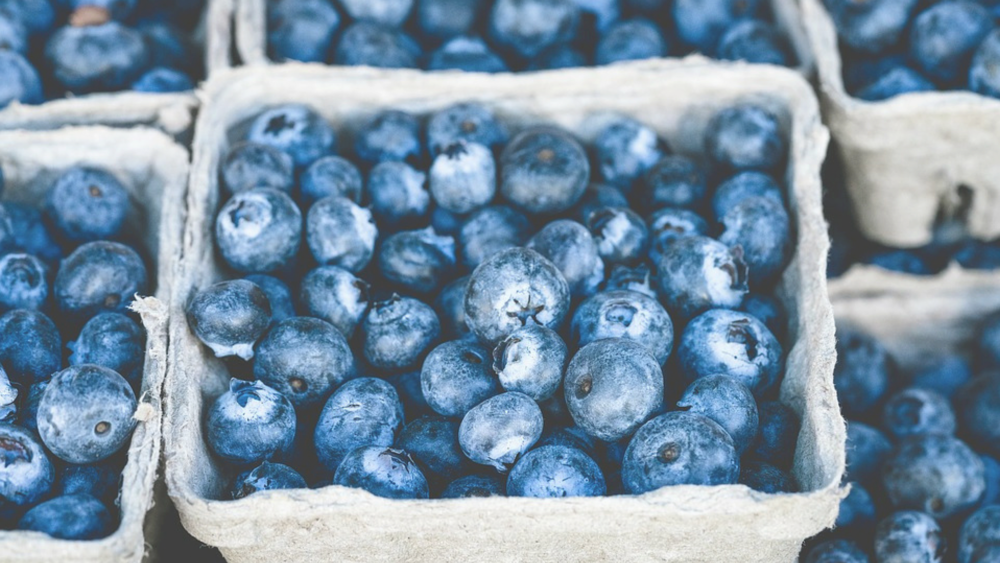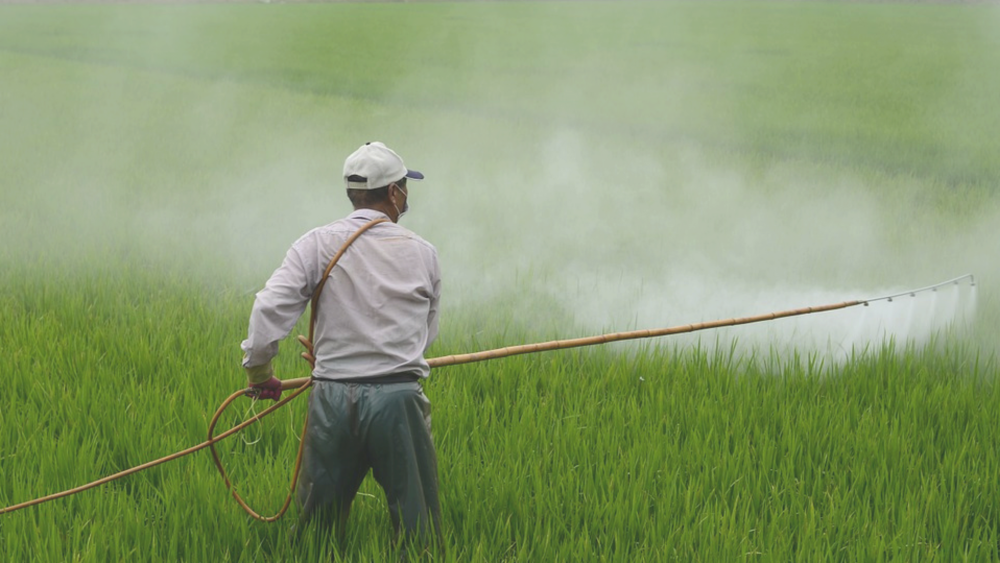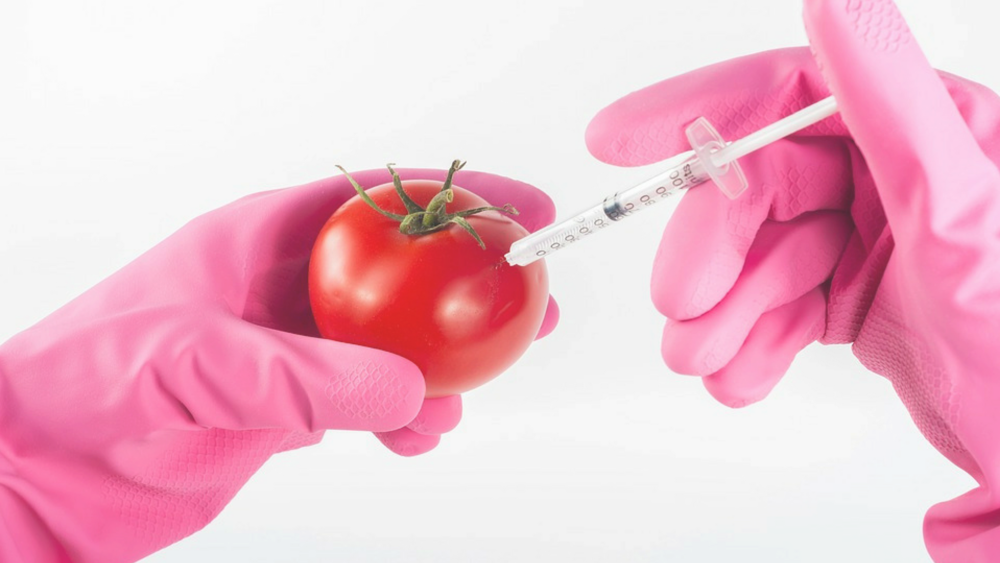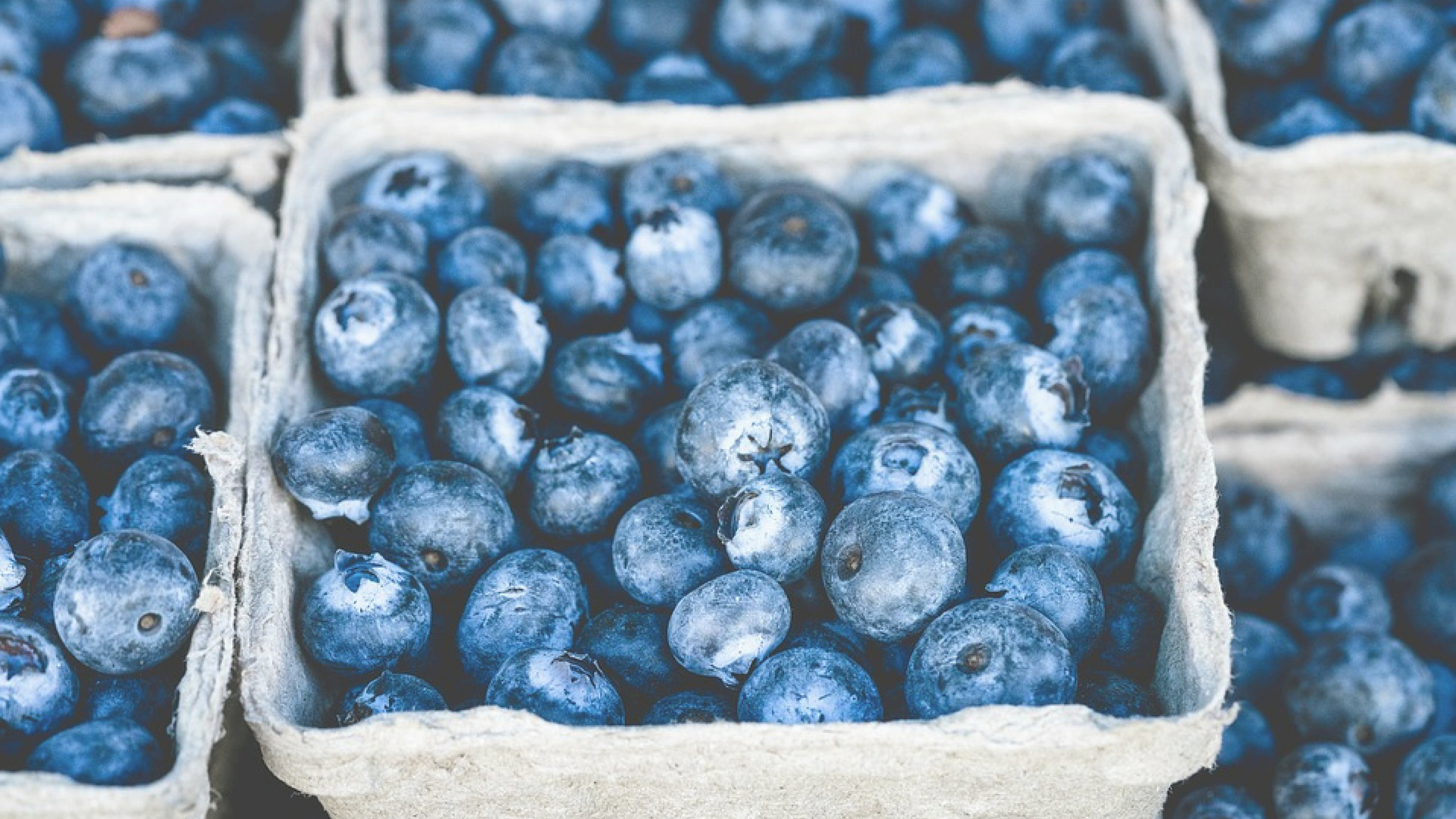June 17, 2019
To answer the question in short … YES, we should!
Well, maybe not panic, but it is very important that we focus on consuming foods that are grown organically. “Organic” seems to be a popular buzzword these days and it can be confusing to know whether the investment in such foods is justifiable when compared to foods that are conventionally grown.
However, investing in organics is no doubt worth it for our health and the health of the planet. Plainly put, our government and health care system has completely failed to protect and educate the public on the dangers of modern food production.

Photo Credit: Pixabay
First off, what does organic even mean?
When a food is labeled organic, it means it has grown from non-genetically modified seeds and without the use of harmful chemicals like pesticides, herbicides, and synthetic fertilizers. These toxic substances are found in most non-organic (conventional) foods.
How do Pesticides Effect Human Health?
Although pesticides have been approved by the Canadian Food Inspection Agency, more and more findings suggest they can cause numerous health concerns by affecting all the systems of the body. When ingested, pesticides can result in memory loss, loss of coordination, altered mood, immune dysfunction, digestive disturbances, and hormone imbalances. (1)
In fact, one study done on frogs found that a build-up of Atrazine, the most commonly used pesticide in the world, caused male frogs to have severely decreased reproductive abilities. Some of them eventually developed into females that could produce viable eggs. (2)
The World Health Organization estimates that there are 3 million cases of pesticide poisoning each year resulting in 220,000 deaths. Another concern is that while there are regulations limiting the amount of an individual pesticide that can be used on a specific crop, there are no regulations restricting the culmination of different types of pesticides that can be used on an individual crop (3). This means that farmers can spray as many types of pesticides on an individual crop, and these combined effects have not been considered when being approved for human consumption.

What About the Effect on the Planet?
The effect that conventionally grown foods have on our planet is another huge factor to consider when debating if organic foods are worthwhile. It’s important to remember that our health is directly connected to all aspects of our lives, including; the environment we live in, the air we breathe, the people we spend time with, the daily rituals we take part in, and finally – our diets.
We cannot damage the planet with harmful chemicals and expect that it won’t influence human health as well. Pesticides have been seen to damage entire ecosystems by diminishing biodiversity and harming important species such as the bees and birds, which play important roles in keeping all things thriving. (4)
Another factor to consider is that synthetic fertilizers are often used to grow non-organic foods. This is problematic in that synthetic fertilizers are lacking most nutrients and therefore do not facilitate fertile soils. Without rich soils, organisms lack the nutrients they need to thrive within their ecosystem and the vegetables that are growing lack many of the essential vitamins and minerals that humans need to consume. (5)
Are GMO’s Problematic Too?
Like pesticides, Genetically Modified Organism’s (GMO’s) are an issue for both human health and our environment. One of the most concerning facts is that we have no idea how severe the long-term consequences will be. Humans are attempting to do what has never been done before, altering the intelligence of Mother Nature. GMO’s have not been studied enough to fully know their effects and this lack of research poses significant risks. Although there are claims that years of lab research must be done on modified crops, the longest food studies, usually with rats, are a maximum of 90 days. (9)
GMO’s have also been seen to create “superweeds” which are herbicide resistant and therefore can overtake an entire crop species. (6) Further research has linked GMO’s to severe threats to human health including; autoimmune conditions, infertility, gastrointestinal disruptions, allergies, cancers, and many others. (7)
In a 2009 study, rats who were fed GMO corn experienced significantly reduced function in their kidneys and liver after only being fed the modified corn for 90 days. (8) As humans, it is not our role to interfere with nature in such a manner, and we really do not fully understand the long-term effects it can have, hence why we need to insist our foods are not GMO and organic.

Photo Credit: Pixabay
Another Significant Piece!
The final, and essential, point to touch on in regards to this topic is to do with the breach of social justice issues that are associated with non-organic foods. To give a quick example of this ever so important issue, take Monsanto, the world’s largest modern agriculture company.
Monsanto has invaded developing countries and created strict regulations for farmers by insisting they buy their patented GMO seeds and abide by specific farming practices.
They have also restricted “seed saving” for following growing seasons. This means farmers are forced to rebuy Monsanto’s seeds year after year, never having the ability to be self-reliant. Their regulations also oblige resident farmers of developing countries, to pursue mono-crop, pesticide-intensive farming practices, as opposed to sustainable ones that would allow them to grow the variety of foods their families need to feed themselves.
The reason Monsanto does this is so people in developed nations can buy foods at a cheaper price and eat foods they are not able to grow in their climates (bananas, avocados, coffee, etc.) all year round. (10) This is further proof as to why we as humans have a huge responsibility to focus on consuming organic foods (and preferably locally grown foods). However, that is is a topic for another blog, as it is such an extensive piece of the puzzle!

Photo Credit: Pixabay
Okay, So What Can We Do?
Despite these concerning facts, there is good news. We CAN change the way our food system works. We, as consumers, have an ability to stand up for what we want and insist that our foods are grown in a way that is sustainable for both our health and the planets’. Here are some ways we can do this:
1) Grow our own food! You don’t need a huge farm to do this. A planter box on your porch can be a great place to start. Kale is usually a safe easy bet to try growing first :-);
2) Support your farmers through regular visits to local markets. Talk to the vendors about their agricultural practices;
3) Buy ORGANIC foods at the grocery store. Always look for the label;
4) Write government officials telling them our desire to see change in our food system. Send an email to the minister of agriculture;
5) If eating organic seems overwhelming to you, check our Clean 15 & Dirty 12 list to help you decide what o buy organic and what not;
6) Know where to look out for hidden GMO’s: they are most commonly found in foods that contain; soy, corn, canola and conventional sugar;
7) Spread the word. We are all teachers and responsible for educating others;
8) Be persistent and optimistic! Things will change when we put our energy towards important topics like this and refuse to stop until we are living in the world we want.
If you enjoyed this blog, sign-up for our newsletter to receive future updates.
RESOURCES
1. Chemical Pesticides and Human Health: The Urgent Need for a New Concept in Agriculture, Frontiers Public Health, 2016, Vol 4, P. Nicolopoulou-Stamati et al.
2. Atrazine induces complete feminization and chemical castration in male African clawed frogs (Xenopus laevis), PNAS, 2010, Tyrone B. Hayes et al.
3. Combined Toxic Exposures and Human Health: Biomarkers of Exposure and Effect, International Journal of Environmental Research and Public Health, I. Silins and J. Högberg
4. Effects of Pesticides on Environment, Plant, Soils, and Microbes, March 2016, I. Mahmood et al.
5. Compost, Manure and Synthetic Fertilizer Influences Crop Yields, Soil Properties, Nitrate Leaching and Crop Nutrient Content, Compost Science and Utilization, 2009, Vol 17, P. Hepperly et al.
6. The Rise of Superweeds—and What to Do About It, Union of Concerned Scientists (2013)
7. American Academy of Environmental Medicine
8. A Comparison of the Effects of Three GM Corn Varieties on Mammalian Health, Int. Journal of Biological Sciences, 2009, J. Spiroux de Vendômois et al.
9. GMO answers, FAQ Monsanto

Meghan De Jong is a Registered Holistic Nutritionist (RHN) certified by the Canadian School of Natural Nutrition (CSNN), Vancouver. She has a Bachelor’s degree in Kinesiology from the University of British Columbia.
Passionate about working with a wide range of health topics she wants nothing more than to ensure all peoples concerns are cared for and to support people in becoming advocates for their own health. Meghan believes that every single person, no matter who they are, should have access to nutritional advice.

Comments